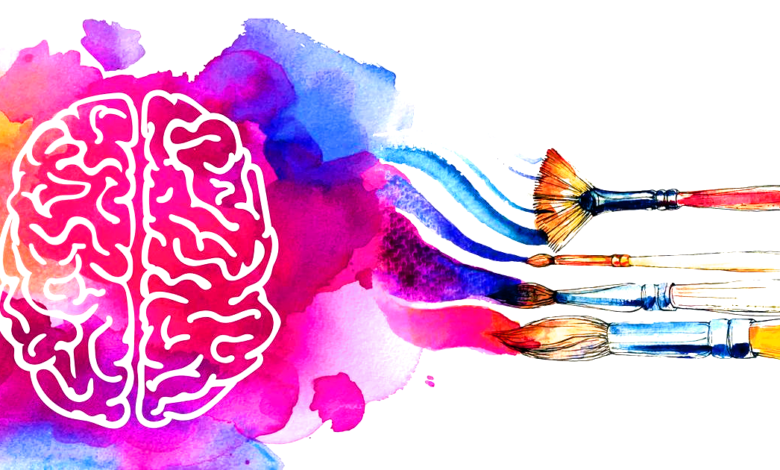Tips for Boosting Brain Health: Nourish Your Mind Naturally

In a fast-paced world where demands on our cognitive abilities are higher than ever, maintaining optimal boosting brain health is paramount. The intricate connection between lifestyle choices and cognitive function cannot be overstated.
Nutrient-Rich Diet
Our brains require a balanced diet rich in essential nutrients for optimal functioning. Nutrients such as omega-3 fatty acids, antioxidants, and vitamins play a pivotal role in boosting cognitive abilities. Incorporating foods like fatty fish, berries, and leafy greens can significantly nourish your mind.
Read More : The Benefits of Laughter: Tips for a Happier and Healthier Life 2024
A nutrient-rich diet forms the cornerstone of a healthy lifestyle, encompassing a diverse range of essential vitamins, minerals, and other vital substances that are fundamental to sustaining optimal bodily functions.
This dietary approach prioritizes the consumption of whole, unprocessed foods, such as fresh fruits and vegetables, lean proteins, whole grains, and healthy fats, which collectively provide a rich tapestry of nutrients. These nutrients play pivotal roles in supporting various physiological processes, including energy metabolism, immune function, and tissue repair.
Embracing a nutrient-rich diet not only contributes to overall well-being but also aids in the prevention of chronic diseases and promotes longevity. By emphasizing the quality and variety of food choices, individuals can harness the nutritional power of their diet to nourish their bodies comprehensively, fostering resilience and vitality for a vibrant and balanced life.
Regular Exercise for the Mind
Physical exercise isn’t just beneficial for the body; it’s a game-changer for the mind. Engaging in activities that promote neuroplasticity, such as puzzles and memory games, can enhance cognitive function and reduce the risk of cognitive decline.
Quality Sleep
A good night’s sleep is crucial for cognitive performance. Developing healthy sleep habits and ensuring adequate rest positively impacts memory consolidation and problem-solving skills.
Stress Management
Chronic stress can take a toll on the brain, leading to cognitive decline. Adopting stress-reducing techniques like meditation and deep breathing exercises can significantly contribute to maintaining a healthy mind.
Social Engagement
Human connections are vital for cognitive well-being. Engaging in social activities and fostering meaningful relationships can provide emotional support and positively impact mental resilience.
Cognitive Challenges
Mental stimulation is akin to a workout for the brain. Regularly challenging your cognitive abilities through activities like reading, learning new skills, or solving puzzles keeps the mind sharp and agile.
Hydration and Brain Function
Staying hydrated is essential for overall boosting brain health, and the brain is no exception. Dehydration can impair cognitive function, making it crucial to maintain adequate fluid intake throughout the day.
Proper hydration plays a pivotal role in maintaining optimal brain function and overall cognitive performance. The intricate relationship between hydration and the brain is multifaceted, impacting various aspects of cognitive abilities, mood regulation, and overall mental well-being.
Water is an essential component of the human body, constituting a significant percentage of both brain tissue and cerebrospinal fluid. This intricate network of water channels facilitates the efficient transport of nutrients, oxygen, and neurotransmitters to and from brain cells. Adequate hydration ensures optimal blood flow to the brain, promoting the delivery of essential nutrients and oxygen that are vital for various cognitive functions.
Dehydration, on the other hand, can have detrimental effects on cognitive performance. Even mild dehydration has been shown to lead to difficulties in concentration, memory, and attention. Studies suggest that dehydration can result in a reduction in brain volume and temporary cognitive impairments, emphasizing the importance of maintaining proper fluid balance for sustained mental acuity.
Furthermore, hydration is intricately linked to mood regulation. Dehydration has been associated with increased feelings of anxiety, irritability, and fatigue. The brain’s sensitivity to changes in hydration status can influence neurotransmitter production, affecting mood and emotional well-being. Staying adequately hydrated, therefore, is not only crucial for cognitive functions but also for promoting a positive and balanced emotional state.
Avoiding Harmful Substances
Smoking and excessive alcohol consumption have detrimental effects on cognitive function. Avoiding substance abuse is a key aspect of preserving brain health.
Mindfulness Practices
Mindfulness, rooted in practices like meditation and mindfulness-based stress reduction, has shown significant benefits for boosting brain health. Cultivating mindfulness contributes to improved focus, emotional regulation, and overall cognitive well-being.
Balancing Technology Use
In the digital age, finding a balance with technology is crucial. Implementing a digital detox and setting boundaries with screen time can mitigate the negative impact of excessive technology use on cognitive boosting brain health.
Nature and Brain Connection
Connecting with nature has profound effects on stress reduction. Spending time outdoors and engaging in nature-based activities can positively influence cognitive function.
Cognitive Supplements
While considering cognitive-enhancing supplements, it’s essential to consult healthcare professionals. Some supplements, like omega-3 fatty acids and certain vitamins, may complement a healthy lifestyle for optimal boosting brain health.
Consistency in Brain-Boosting Habits
Building sustainable habits is key to long-term cognitive health. Consistency in adopting brain-boosting practices ensures enduring benefits and resilience against cognitive decline.
Read More : Health Benefits of Green Tea: Tips for Brewing a Healthy Cup
Conclusion
Nourishing your mind naturally involves a holistic approach to lifestyle. From a nutrient-rich diet to mindfulness practices and social engagement, every aspect contributes to a resilient and sharp mind. By embracing these tips, you embark on a journey to prioritize your brain health and unlock its full potential.
FAQs
Q1: Can specific foods really enhance brain function?
A1: Yes, certain foods rich in nutrients like omega-3 fatty acids and antioxidants have been linked to improved cognitive function.
Q2: How important is social engagement for boosting brain health?
A2: Social engagement is crucial as it provides emotional support, reduces stress, and contributes to cognitive resilience.
Q3: Are there any quick exercises I can do to boost my brain on a daily basis?
A3: Yes, activities like puzzles, memory games, and even regular physical exercise can significantly enhance cognitive function.
Q4: Do cognitive supplements really work, and are they safe?
A4: Some supplements may complement a healthy lifestyle, but it’s essential to consult healthcare professionals for personalized advice.
Q5: Can technology use negatively impact brain health?
A5: Excessive screen time and technology use can have negative effects, emphasizing the importance of setting healthy boundaries for cognitive well-being.











